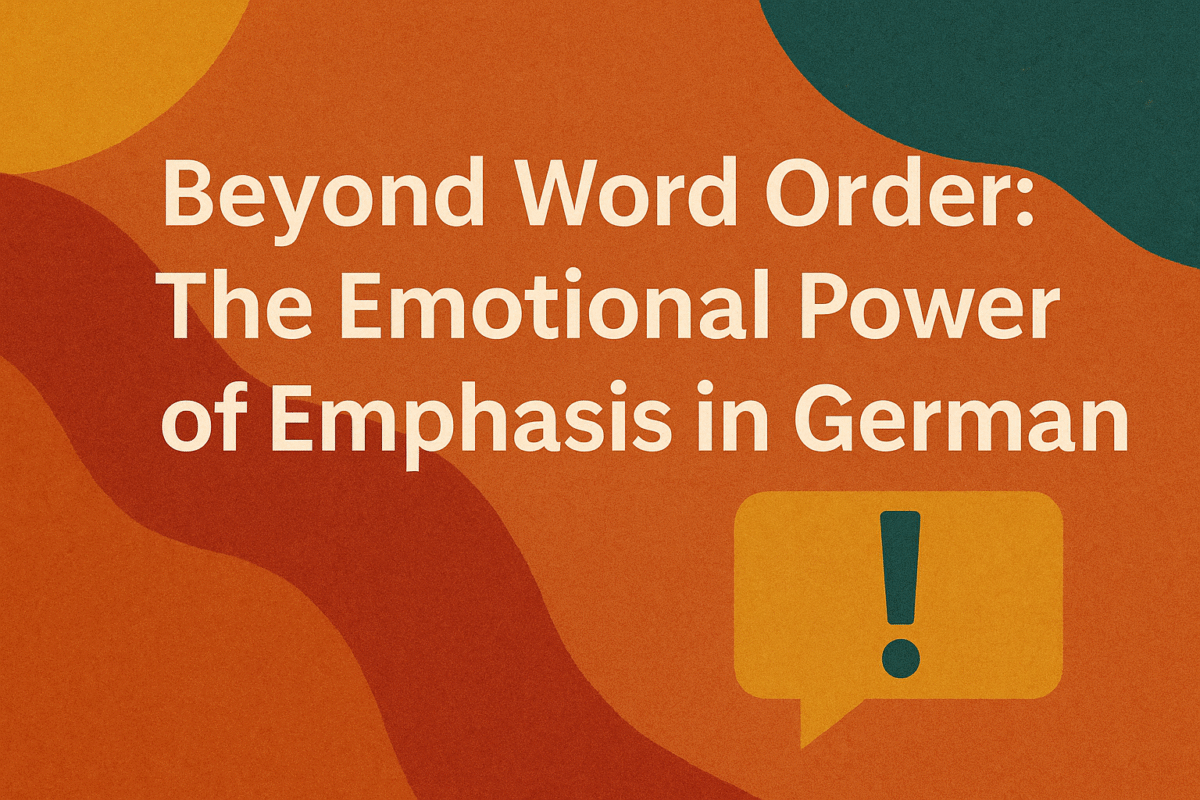When we talk about German grammar, most learners immediately think of rules: verb in the second position, subject–verb agreement, cases. But there’s something far more human, far more alive hidden in the structure of German: emphasis. And this is where grammar becomes psychology, and word order becomes emotion.
Why Emphasis Is More Than Grammar
German is famous for its relatively strict word order. Still, within this framework lies a freedom that many learners overlook. The element placed before the verb is not just about structure — it’s about meaning.
比较
- Heute kaufe ich das Buch. → Today, I am buying the book.
- Das Buch kaufe ich heute. → It’s the book I’m buying today.
- Ich kaufe das Buch heute. → Neutral narrative tone.
Each sentence is correct, but the emphasis shifts. And that shift changes the listener’s mental picture.
Politeness, Curiosity, Annoyance
Emphasis is also a mirror of mood. The same sentence can sound polite, curious, annoyed, or enthusiastic depending on where you place the spotlight.
- Das Auto habe ich gesehen. → Neutral statement.
- Das Auto habe ich doch gesehen! → A touch of frustration or insistence.
- Gesehen habe ich das Auto! → Dramatic or emphatic tone, almost theatrical.
In real life, this subtle play of emphasis can decide whether you sound friendly, impatient, or formal.
Emphasis in Questions
Questions in German also carry this hidden emotional layer:
- Wann kommst du? → Standard, neutral.
- Du kommst wann? → Surprise, doubt, or even annoyance.
- Wann kommst du? → Focus on the person: 你, not someone else.
By shifting the focus, you shift the relationship.
Real-Life Communication
This is where many learners stumble. They translate word for word from English, forgetting that German ears are listening not only to 什么 is said but also 如何 it is emphasized. A misplaced spotlight can make you sound rude, overly dramatic, or simply confusing.
Learning to hear and use emphasis means learning to connect beyond grammar.
Teaching Beyond Rules
在 列维廷语言学校 和 开始语言学校》,作者 Tymur Levitin, we believe language is not just structure — it’s rhythm, intention, and psychology. That’s why in our German lessons we ask students not only:
- What do you want to say?
but also: - How do you want it to sound? What do you want the listener to feel?
This is where grammar ends — and real communication begins.

🔗 Related reading from our blog:
🌍 探索更多 Studying German — Meet our teachers
📚 Category: Interesting Information
© Author: 泰穆尔-列维廷 — Founder and Head Teacher at Start Language School by Tymur Levitin / Levitin Language School
























